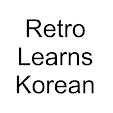This article is going to presume that you have at least the knowledge of the number systems, although as we all know knowledge is not acquisition. I will try to cover some strategies you can use to better help remember the numbers and also make it more natural to read them in Korean.
As anyone who has tried to learn another language will know it's very difficult to read a written arabic number without defaulting to saying it in your native language. I know many people who are extremely fluent in English and say they always count in their native language. However our aim should be to at least be comfortable with numbers so that we can tell people things like our age or our birth date.
I've found while learning Korean that numbers come up very often in various ways and it has become beneficial for my reading speed and understanding to be able to automatically know the number in Korean. For reference I will refer to 일, 이, 삼 as the Sino-Korean system and 하나, 둘, 셋 as the pure Korean system.




